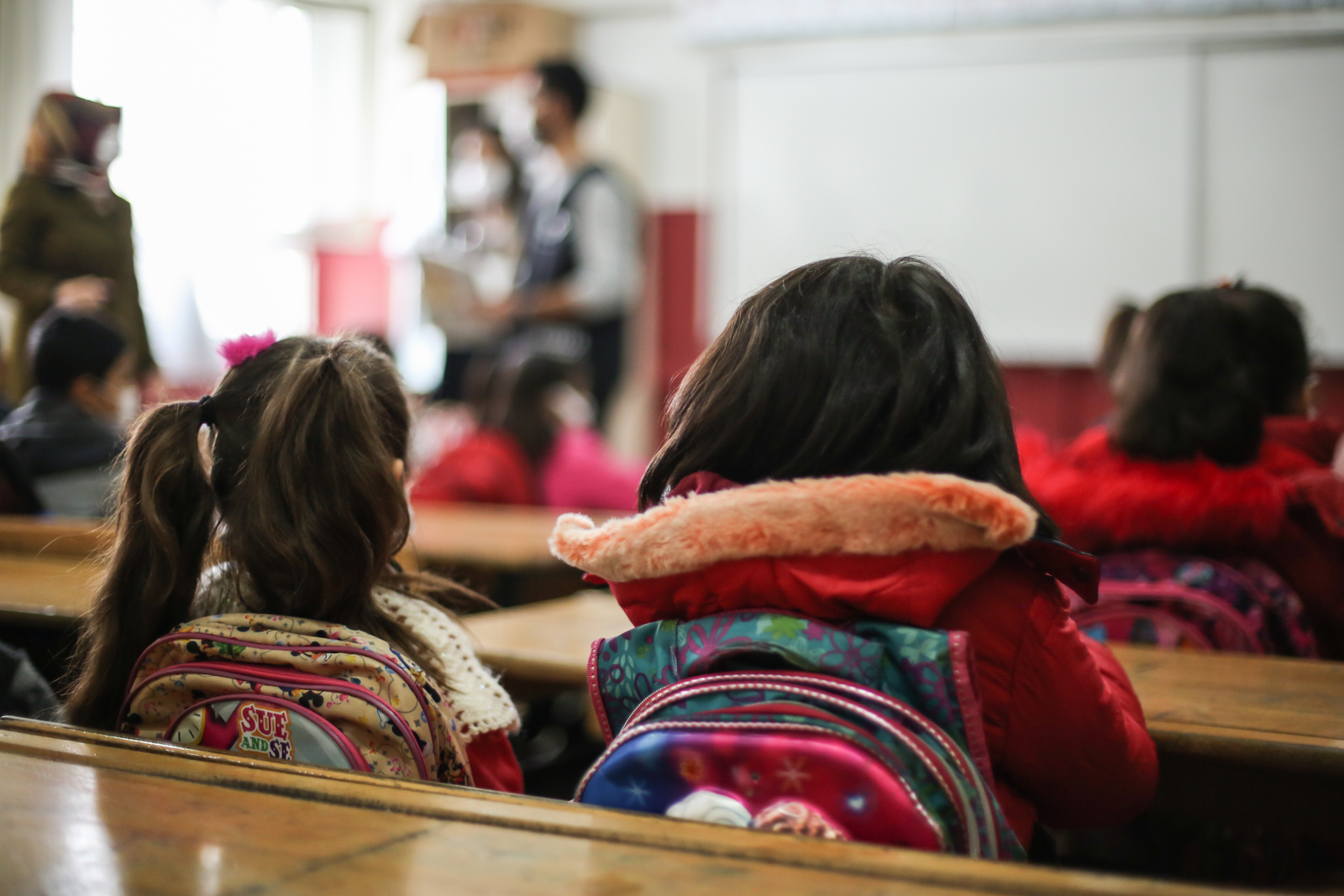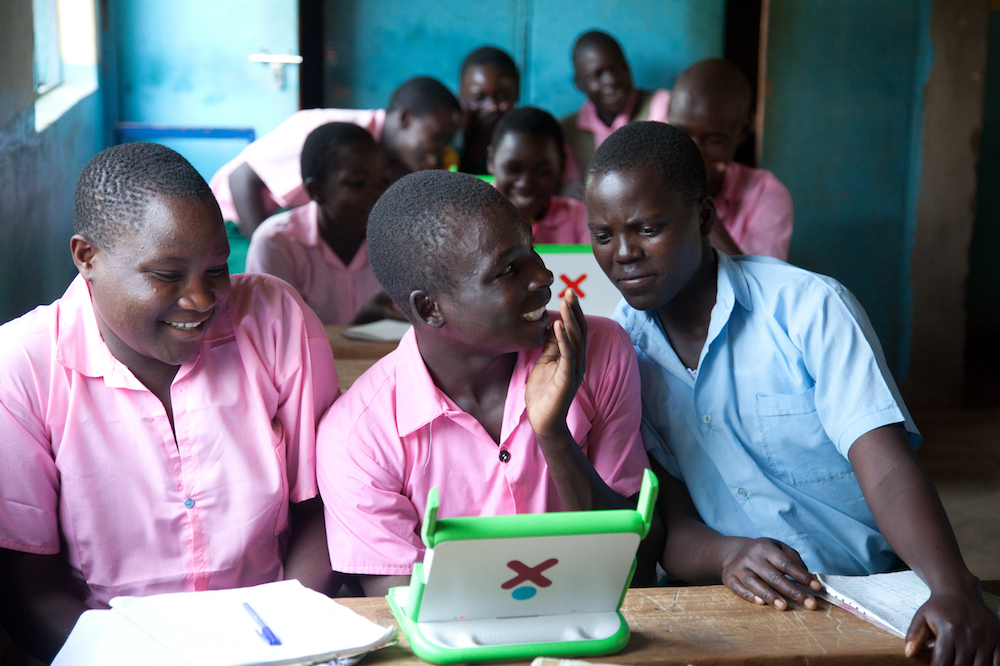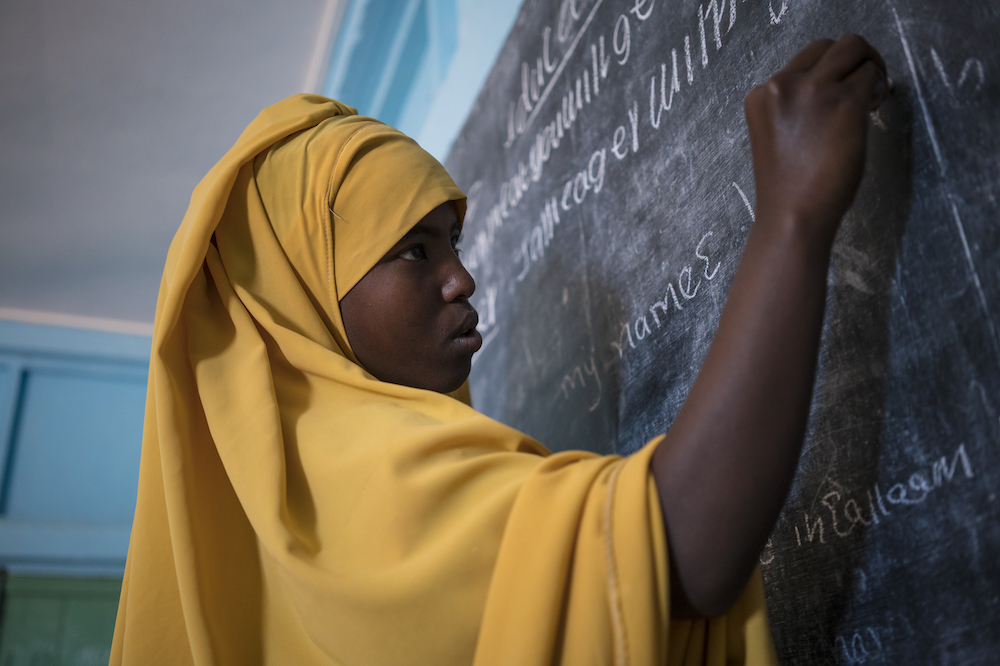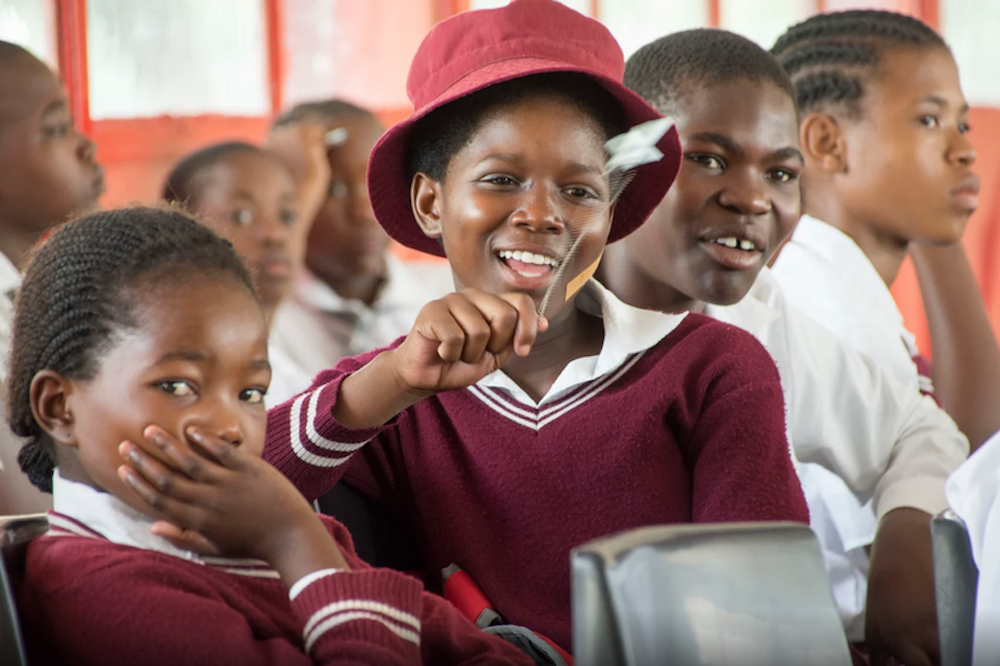
Free sanitary pads and safe spaces are needed to help girls stay in school

Barriers to education, Girls' education, Right to education
The Kenyan government has said it will give free products to female students - it's the latest move to tackle an issue that is still taboo in many countries.
Girls in many parts of the world can face huge obstacles that prevent them from getting a good education. Being married young, forced to work for their family or an employer – or discriminated against simply because of their gender.
There’s another major issue which too often remains a hidden reason for girls not being at school.
It’s menstruation – still a taboo subject in many countries. One in 10 girls in African are believed to miss school during their periods, according to UNICEF. As a result, they can fall behind with their class work and often drop out of school altogether.
Some reports say girls can miss as many as 50 days each year because they don’t have sanitary products or suitable – and separate – toilet and washing facilities at their school.
Thankfully, the situation is beginning to improve. This week the Kenyan government said all schoolgirls would be given free sanitary pads to encourage them to go to school during their periods.

The Kenyan government is now treating access to sanitary pads as a basic human right (UNICEF)
A new law also means every girl is entitled to “free, sufficient and quality sanitary towels” and a safe place to dispose of them.
“We are treating the access to sanitary pads as a basic human right,” government spokesman Eric Kiraithe told the Thomson Reuters Foundation.
“We are improving the sanitation and healthcare of our schoolgirls, which will boost their class attendance.”
In Nairobi’s Kibera slum, Shining Hope for Communities runs girls’ schools. Director Albanous Gituru welcomed the government’s move, saying: “This will give girls confidence to attend class on any day of the month, consequently improving their academic performance.”
In neighbouring Uganda, researchers from Oxford University found school absenteeism was 17% higher among girls who had no access to sanitary towels or information about puberty.
The Kasiisi Project Girls Support Program has a series of initiatives to help girls complete their education.
Among them are:
- Supplying sanitary pads to girls who are menstruating
- Constructing private girls-only toilets
- Providing accurate health information and mentorship through a female health worker

Menstruation is still taboo in many countries around the world and is a major reason for girls missing school (USAID)
The organisation said: “Early data show that the programmes have had a remarkable impact.”
In Rwanda, the charity Action Aid UK has built safe spaces for girls in nine schools.
These are rooms in separate buildings away from the school – run by a matron and equipped with a toilet, a shower, sanitary products, spare clothes and a private space to change and rest.
“Girls who get their periods at school don’t go home anymore,” said Bernadine, a maths teacher who also runs a safe space for girls.
“They stay at school because we give them all the things they need. More than five girls use the services in the safe room every day.”

Although the problem is more widespread in developing countries, it can also be an issue in wealthier countries.
Freedom4Girls is a British charity that supplies sanitary products to women in Kenya. But earlier this year it revealed that it had been approached by a school in Leeds, England that was worried about girls being absent.
It turned out their families were too poor to afford sanitary products and the charity is now supplying them to the school.
Tina Leslie, a public health worker in Leeds and part of Freedom4Girls, told the BBC’s Woman’s Hour radio show: “I wasn’t shocked at all. We had an idea that there was something happening in schools. It’s linked to poverty. We need to give these girls dignity back.”
More news

Skills for the future give young people the best chance of success
